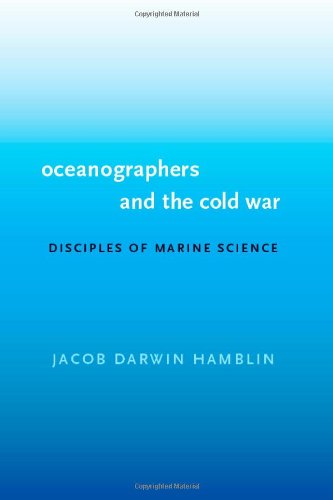

Most ebook files are in PDF format, so you can easily read them using various software such as Foxit Reader or directly on the Google Chrome browser.
Some ebook files are released by publishers in other formats such as .awz, .mobi, .epub, .fb2, etc. You may need to install specific software to read these formats on mobile/PC, such as Calibre.
Please read the tutorial at this link: https://ebookbell.com/faq
We offer FREE conversion to the popular formats you request; however, this may take some time. Therefore, right after payment, please email us, and we will try to provide the service as quickly as possible.
For some exceptional file formats or broken links (if any), please refrain from opening any disputes. Instead, email us first, and we will try to assist within a maximum of 6 hours.
EbookBell Team

4.0
16 reviewsParadoxically, American oceanography after World War II was enmeshed in the military-industrial complex while characterized by close international cooperation. The military dimension of marine science--with its involvement in submarine acoustics, fleet operations, and sea-launched nuclear missiles--coexisted with data exchange programs with the Soviet Union and global operations in seas without borders.
From an uneasy cooperation with the Soviet bloc in the International Geophysical Year of 1957-58, to the NATO Science Committee in the late 1960s, which excluded the Soviet Union, to the U.S. Marine Sciences Council, which served as an important national link between scientists and the government, Oceanographers and the Cold War reveals the military and foreign policy goals served by U.S. government involvement in cooperative activities between scientists, such as joint cruises and expeditions. It demonstrates as well the extent to which oceanographers used international cooperation as a vehicle to pursue patronage from military, government, and commercial sponsors during the Cold War, as they sought support for their work by creating "disciples of marine science" wherever they could.
Jacob Darwin Hamblin is a lecturer in history at California State University in Long Beach.
"Jacob Hamblin's study is a bombshell that shows the great extent to which U.S. military and diplomatic interests molded the attitudes and actions of American scientists." - Lawrence Badash, author of Scientists and the Development of Nuclear Weapons
"In clear, frequently entertaining, prose, Jacob Hamblin expertly demonstrates how oceanographers maneuvered through the political minefields of the Cold War while working to define and develop their field." - Kurkpatrick Dorsey, author of The Dawn of Conservation Diplomacy
"Hamblin covers a wider perspective than just that of the U.S., clarifying the importance, and distinctive perspective, of small, maritime-oriented nations such as Britain and Norway, and explaining distinctions between their interests, those of the superpowers, and those of developing nations." - Helen M. Rozwadowski, author of The Sea Knows No Boundaries
"Hamblin has written about the decades just after WWII when American oceanography blossomed and new marine science institutions emerged. Read this to see how much our work today has been influenced by these events of the not-so-distant past." - Warren S. Wooster, Professor Emeritus, University of Washington School of Marine Affairs